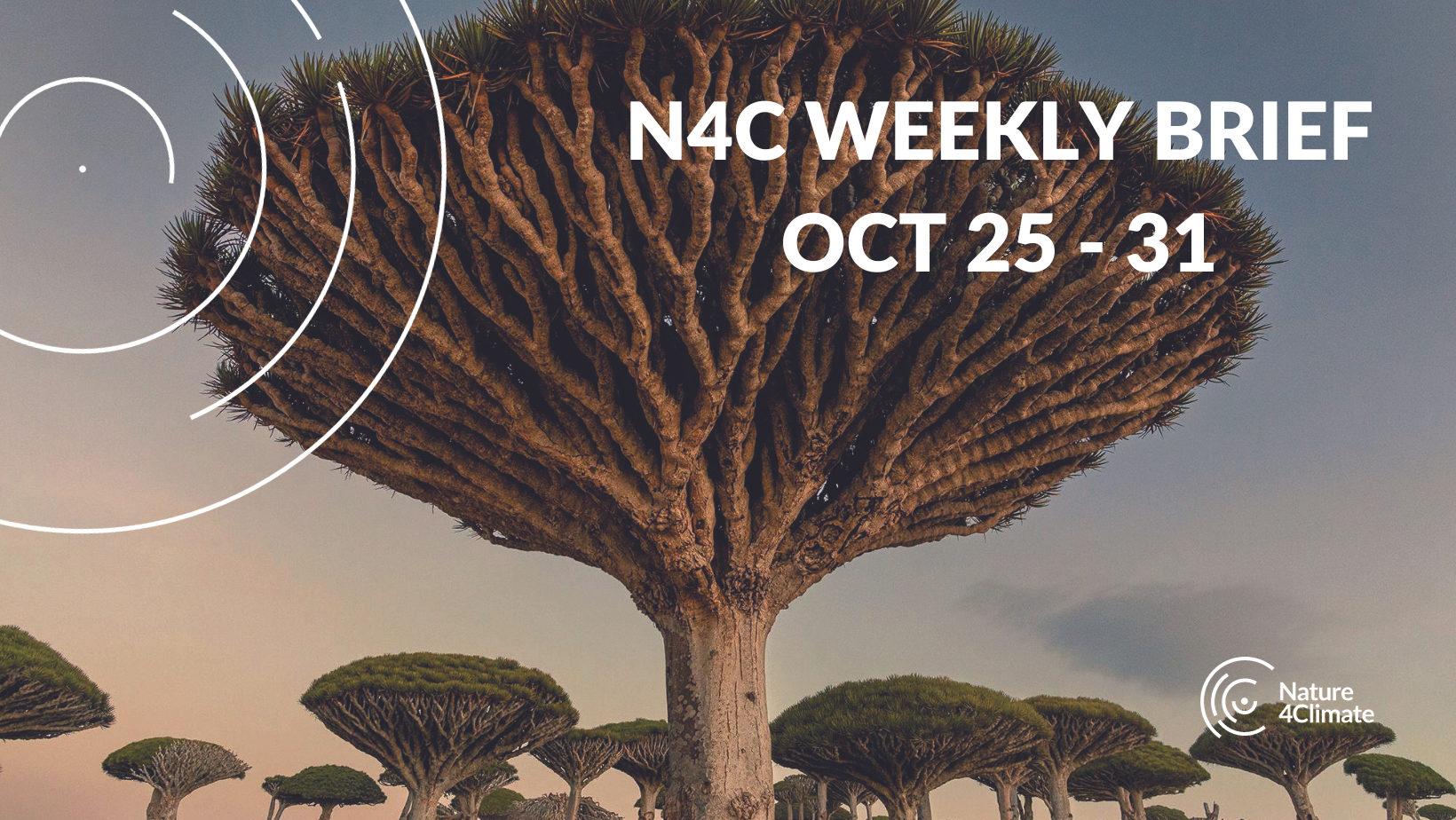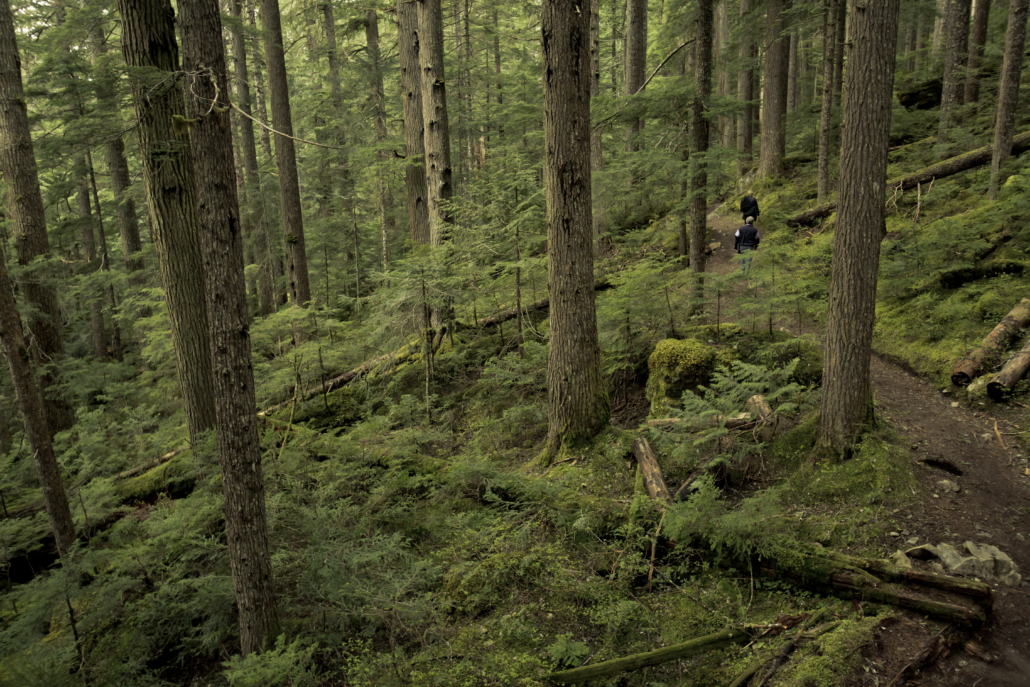
FEATURED NEWS
3 Basins Summit: towards a common roadmap to protect the forest
Afrik21, Boris Ngounou, 30 October
Afrik21 covers the Three Basin Summit held in Brazzaville, Republic of Congo last week. Despite the notable absences of presidents Lula da Silva of Brazil and Emmanuel Macron of France, not forgetting UN secretary-general Antonio Guterres, the participants, including 10 African heads of state, reaffirmed their commitment to cooperating on the basis of a roadmap, moving towards the construction of a common framework between the three basins. In contrast, Quantum Commodity Intelligence reported that the summit failed to deliver major advances in the fight against deforestation, as political leaders from the Amazon, the Borneo-Mekong-Southeast Asia regions and even developed countries largely snubbed the event.
US-backed oil exploration bringing global forests to ‘point of no return,’ activists say
The Hill, Saul Elbein, 26 October
The Hill covers a report from Earth Insight and other partners highlighting the threat that fossil fuel, mining, and extractive industry expansion pose to tropical forests around the world. According to the report, oil and gas concessions now cover nearly a fifth of the Amazon, Congo and the Borneo-Mekong Basins. E&E News covers a report from Financial Accountability and Corporate Transparency (FACT) Coalition that finds the US has become a prime safe haven for illegal financial flows from environmental crimes in the Amazon that threaten national security, public safety and climate change. The Guardian reports that secrecy and lax oversight have made the US a hiding place for dirty money accrued by environmental criminals in the Amazon rainforest according to FACT as well.
EDITORIAL: We know the VCM is in need of reform, but what about processes that feed into the market?
Quantum Commodity Intelligence, 26 October
Quantum Commodity Intelligence releases an editorial on the state of the Voluntary Carbon Market and what is needed to fix it. Bloomberg covers the the collapse of the partnership behind the Kariba carbon offset project as South Pole terminated its contracts and Verra has put the project on hold pending investigation. Quantum Commodity Intelligence reports an investigation led by French-based Catholic charities and NGOs on Friday claimed land grabs and exclusion of Indigenous groups from farming are breaches of human rights associated with a forest carbon project in the Republic of Congo selling credits to energy major TotalEnergies. Quantum Commodity Intelligence reports the Green Climate Fund (GCF) has postponed a key decision on future payments for REDD+ projects until March 2024.
‘It’s Like Our Country Exploded’: Canada’s Year of Fire
The New York Times, David Wallace-Wells, 24 October
The New York Times dives into the wildfires that have been ravaging Canada this year. By the end of September, more than half of the world’s countries could fit inside the land burned this year in the Canadian wilderness. Since the 1970s, the average area burned in the country had already doubled; this year, wildfires consumed that average six times over. The modern single-year record had been set in 1989, when almost 19 million acres burned across the country. In 2023, the total has passed 45 million.
‘New frontier’: Global study tots up $7.5bn investment in nature tech start-ups since 2018
BusinessGreen, Stuart Stone, 25 October
BusinessGreen covers Nature4Climate’s nature tech report, developed with investment firm Serena and nature tech membership body MRV Collective. The report estimates early-stage deals rose by 130 per cent between 2020 and 2022, while average deal sizes for seed to series B funding increased by 70 per cent, pointing to growing maturity in the industry.
SPOTLIGHT
The first Global Stocktake at COP28 is a vital course correcting moment. Parties have the opportunity to unlock finance and accelerate action to achieve a nature positive, net zero world.
Join global leaders and nature champions by signing our open letter to add your voice calling for greater integrity and ambition. This open letter, to be delivered to Ministers at COP 28, is calling on Global Stocktake Parties who have made public global commitments through the Leaders Pledge for Nature, Paris Agreement and the Global Biodiversity Framework, to publicly share plans, budgets and regulatory reforms on how they will implement and finance nature-based solutions (NbS).
Forest and Climate Leaders’ Partnership at COP28
The Forest & Climate Leaders’ Partnership (FCLP) will host an event at COP28 on ‘Delivering on the Glasgow Leaders’ Declaration: Halting and Reversing Forest Loss by 2030’. The event will be held from 16:30 -18:00 during Nature, Land Use and Ocean Day on the 9th of December. If you are coming to COP28 and interested in attending, please RSVP by November 24th, and the FCLP will hold a ticket for you.
FOR YOUR INFORMATION
Global Canopy, Stockholm Environment Institute and ZSL SPOTT launch FOREST IQ a new data platform for financial institutions to access actionable data on how more than 2,000 major companies are addressing their links to deforestation.
SPOTT invites feedback on the SPOTT Natural Rubber indicator framework ahead of its 2024 assessments.
Sylvera releases its second annual publication of The State of Carbon Credits report, focusing on how the market can move forward after a year of intense scrutiny.
CNN Academy calls for applications from young journalists across the Global South who are dedicated to shedding light on the profound effects of the climate crisis within their home countries for its “Climate Storytelling Across the Global South” program, sponsored by the Rockefeller Foundation.
WBCSD releases the 2023 edition of its annual review of WBCSD member companies sustainability reports. This edition introduces an evolved evaluation framework designed to guide companies in an era of rapidly evolving reporting regulations and increased stakeholder expectations.
Orbitas posts its webinar on the findings of its climate scenario analysis of the financial risks for Scope 3 deforestation emissions from beef, palm oil, coffee, cocoa, rubber and soy imports into the U.S. The event discussed the financial risks of deforestation in key commodity supply chains, the impacts of climate emissions disclosure regulations passed in California and the potential for required emission disclosures worldwide.
UNEP publishes a report titled ‘Increasing Climate Ambition, Decreasing Emissions: The third progress report of the Net-Zero Asset Owner Alliance,’ communicating data on members’ progress towards the Alliance’s goals.
CPIC releases a report exploring the financing journey of nature-based projects. The paper highlights the need for various tools and financing mechanisms to cater effectively to the needs of the projects as they transition from incubation to market integration.
Conservation International opens grant applications for the 2024 Regenerative Fund for Nature, which aims to support innovative agricultural practices and transform the supply chains that provide the raw materials for fashion.
CIFOR publishes a study considering the impacts of public and private sector zero-deforestation commitments, using South Sumatra Province, Indonesia, as a case study.
UNEP releases a guidance report providing recommendations for funds aiming to create robust environmental and social impact management frameworks.
Global Canopy shares its 2022/2023 annual report outlining its work to hold those accountable for driving tropical deforestation and nature loss, and to enable change through data, tools and guidance.
Climate Action Reserve announces a Guatemala Forest Protocol that will focus on the crediting of activities that sequester CO2e from the atmosphere through increasing carbon stocks in trees over time. The protocol is available for public comment from October 16 – November 14.
Carbon4 Finance and CDC Biodiversité share analysis of the impact of a STOXX Europe 600 portfolio on hashtag biodiversity using the Biodiversity Impact Analytics powered by the hashtag#
USDA releases “A General Assessment of the Role of Agriculture and Forestry in the U.S. Carbon Markets,” a comprehensive look at current market activity, barriers to participation, and opportunities to improve access to carbon markets for farmers and forest landowners.
Jurisdictional Approaches Resource Hub shares a report exploring how and why midstream and downstream companies have taken landscape-scale action in beef producing areas, providing recommendations for companies.
Earth InSight releases the “Three Basins Threat Report” ahead of the Summit of the Three Basins to call attention to the expansion threats posed by fossil fuel, mining, and other industrial expansion in the world’s last intact remaining tropical forests.
Rubicon Carbon announces two new features to demonstrate its commitment to the Voluntary Carbon Market 2.0: a Carbon Removal RCT and the ability for clients to build their own portfolios.
Carbon Direct shares the “2023 State of the Carbon Market” report, providing a snapshot of key trends and market developments.
Compensate publishes a report covering what the nascent biodiversity markets can learn from the voluntary carbon market.
World Wildlife Fund releases its “2023 Plowprint Report” which analyzes the rate of grassland plow-up across the US, and Canadian portions of the Great Plains, based on the USDA’s annual Cropland Data Layer and the Agriculture and Agri-Food Canada’s Annual Crop Inventory.
Clean Cooking Alliance launches a new digital magazine exploring the link between gender equality and access to clean cooking.
UNEP releases a report identifying how non-state actors can strengthen climate action transparency and evaluating how to better integrate NSA actions into countries’ policies under the Enhanced Transparency Framework (ETF) of the Paris Agreement.
UNEP shares its “Adaptation Gap Report” for 2023, which provides an annual science-based assessment of the global progress on adaptation planning, financing, and implementation.
We Mean Business Coalition launches a report analyzing the pace of change in eight key sectors, identifying the barriers faced by businesses that are rapidly decarbonizing to meet their climate targets. The report is intended to complement the first UNFCCC Global Stocktake, which culminates at COP28.
WBCSD and Race to Zero announce a new partnership to accelerate corporate climate action and help achieve a net-zero carbon future by 2050.
CASE STUDY
N4C is compiling an index of NBS case studies, together with an interactive map, to highlight action on the ground. Each week, we will be choosing a case study to present, to help give concrete examples of work being done to bring NBS theory into practice.
Cheakamus Community Forest
WHERE: BRITISH COLUMBIA, CANADA
TYPE OF NCS SOLUTION: MANAGE
The Cheakamus Community Forest is one of around 50 community managed forests in Canada’s British Columbia province. To reflect the cultural partnerships in the region, the 33,000 hectares of forest are protected through joint management with the Lil’wat Nation, and Squamish Nation, and the Resort Municipality of Whistler.
Photo: Cheakamus lake trail (Whistler, BC) by Justa Jeskova
NUMBER OF THE WEEK – $ 7.5 bn
Venture capital investment in nature tech start ups has surged by $7.5 bn worldwide over the past five years, according to Nature4Climate’s nature tech report.
GOOD NEWS
Nature Restoration Fund Hits £30M Milestone for Scotland
Scottish Green Minister Lorna Slater has revealed some 150 projects across the country have already shared in £30m of investment allocated from the Scottish Government’s Nature Restoration Fund. Coastal areas, marine habitats, and work on invasive species, habitat and species restoration and crucially, on health and well-being of local communities, have all benefited from the fund.
